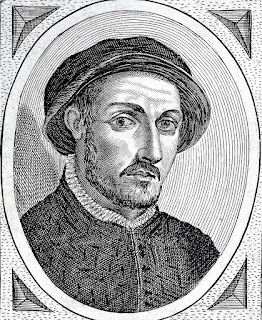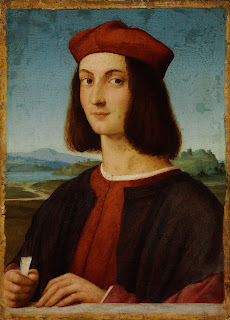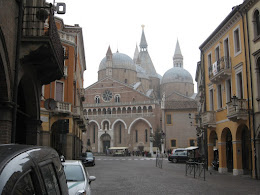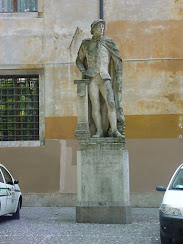Benito Jacovitti - cartoonist
Multiple comic characters loved by generations
Benito Jacovitti, who would become Italy's most famous cartoonist, was born on this day in 1923 in the Adriatic coastal town of Termoli. Jacovitti drew for a number of satirical magazines and several newspapers but also produced much work aimed at children and young adults. His characters became the constant companions of generations of schoolchildren for more than 30 years via the pages of Diario Vitt, the school diary produced by the publishers of the Catholic comic magazine Il Vittorioso, which had a huge readership among teenagers and young adults, and for which Jacovitti drew from 1939 until it closed in 1969. Jacovitti gave life to such characters as "the three Ps" - Pippo, Pertica and Pallo - as well as Chicchiriccì and Jack Mandolino via their cartoon adventures in Il Vittorioso, introduced Zorry Kid, a parody of Zorro, through a later association with children's journal Il Corriere del Picoli, and the cowboy Cocco Bill, who emerged during his 10-year stint as cartoonist for the daily newspaper, Il Giorno. Born Benito Franco Iacovitti, he was the son of a railway worker. Read more…
_____________________________________
Francesco Gasparini – musician and writer
Opera composer who gave Vivaldi a job
Francesco Gasparini, one of the great Baroque composers, whose works were performed all over Europe, was born on this day in 1661 in Camaiore near Lucca in Tuscany. Gasparini also worked as a music teacher and was musical director of the Ospedale della Pietà in Venice for about 15 years, where he made the inspired decision to employ a 25-year-old Antonio Vivaldi as a violin master. By the age of 17, Gasparini was a member of the Philharmonic Academy of Bologna. He moved to Rome, where he studied under the musicians Arcangelo Corelli and Bernardo Pasquini. His first important opera, Roderico, was produced there in 1694. After arriving in Venice in 1702, he became one of the leading composers in the city. He wrote the first opera to use the story of Hamlet - Ambleto - in 1705, although he did not base the work on Shakespeare’s play. Gasparini was appointed musical director of the Ospedale della Pietà, an orphanage in Venice where young girls received a musical education. The most talented pupils stayed on to become members of the Ospedale’s orchestra and choir. Read more…
____________________________________
Filippo Mazzei – physician and businessman
Liberal thinker was praised by John F Kennedy
Globe-trotting doctor Filippo Mazzei, who was a close friend of the American president, Thomas Jefferson, died on this day in 1816 in Pisa in Tuscany. During the American Revolutionary War, Mazzei had acted as an agent for Jefferson, purchasing arms for Virginia. President John F Kennedy paid tribute to Mazzei’s contribution to the Declaration of Independence in his book, A Nation of Immigrants. Mazzei was born in 1730 in Poggio a Caiano in Tuscany. He studied medicine in Florence and then practiced in both Italy and Turkey. He moved to London in 1755 and set himself up in business as an importer, while also working as an Italian teacher. In London he met both Benjamin Franklin and Thomas Jefferson, who would become two of the Founding Fathers, and came up with the idea of importing Tuscan products, such as wine and olive trees, to the New World. In 1773 Mazzei boarded a ship from Livorno to Virginia, taking with him plants, seeds, silkworms and farmers from Lucca. He visited Jefferson at his estate in Virginia and was given a large piece of land to start an experimental plantation. Mazzei and Jefferson started what was to become the first commercial vineyard in Virginia. Read more…
_____________________________________
Giuseppe Mercalli - seismologist
Scientist who invented Mercalli Scale died in fire
The seismologist and volcanologist Giuseppe Mercalli, who at the time of his death was director of the Vesuvius Observatory, died in a fire at his home in Naples on this day in 1914. The initial suspicion was that Mercalli, who devised a scale for determining the strength of earthquakes according to the intensity of shaking, had knocked over a paraffin lamp accidentally after falling asleep while working late. However, an examination of his remains suggested he may have been strangled after disturbing an intruder, who then soaked his clothes in petrol before setting light to them. A sum of money worth the equivalent of $1,400 (€1,250) today was missing, although no one was ever apprehended for the crime. Born in Milan, Mercalli was ordained a Roman Catholic priest and became a professor of Natural Sciences at the seminary of Milan, although he left under something of a cloud because of his support for Antonio Rosmini, a controversial priest and philosopher who campaigned for social justice and was fiercely critical of various aspects of how the Roman Catholic church operated. Read more…
_____________________________________
Mario Monti – prime minister
‘Super Mario’ stepped in during debt crisis
Economist Mario Monti, who was prime minister of Italy from 2011 to 2013, was born on this day in 1943 in Varese in Lombardy. Monti was invited by Italian president Giorgio Napolitano to form a new government after the resignation of Silvio Berlusconi in November 2011 in the middle of the European debt crisis. Monti, who was the 54th prime minister of Italy, led a government of technocrats, who introduced austerity measures in Italy. Monti was born in Varese and, after attending a private school, went to Bocconi University in Milan, where he obtained a degree in Economics. He was a European commissioner from 1994 to 1999, where he obtained the nickname ‘Super Mario’ from his colleagues and the Press. In 1999 the prime minister at the time, Massimo D’Alema, appointed him to the new Prodi Commission, giving him responsibility for Competition. He was made a lifetime senator by Giorgio Napolitano in November 2011 and a few days later he was invited to form a new government following Berlusconi’s resignation. He appointed a technocratic cabinet composed entirely of unelected professionals. Read more…






























